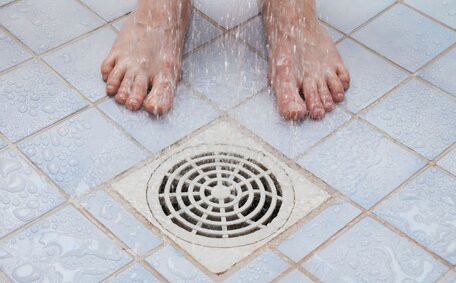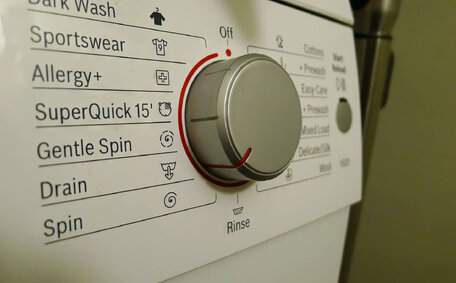
Baking Soda & Vinegar for Cleaning
Using baking soda & vinegar separately for cleaning is very effective; but mixing them dilutes their cleaning power. Learn how to use them properly.
Read MoreIn Australia, hot water systems are crucial for daily living, supplying necessary hot water for various household tasks. They supply hot water for bathing, dishwashing, laundry, and various household activities. Common types of hot water systems used in homes today include:
These systems, from gas to solar models, have their own advantages and drawbacks in terms of energy efficiency, cost, and maintenance requirements. Storage hot water heaters are cost-effective at first, yet they may incur higher maintenance costs with frequent use. While the initial cost is higher for tankless systems, their superior water heating efficiency can lead to long-term savings.
Like any household system, hot water systems can occasionally break down or stop working properly. Knowing how to inspect and rectify issues can ensure a swift and secure restoration of your hot water supply. Routine maintenance, including regular system check-ups, is essential for longevity.
This article provides a detailed guide for homeowners to troubleshoot common hot water system issues. It includes DIY fixes for minor issues and guidelines to maintain optimal hot water function. Understanding the factors that can damage your system and taking preventative measures goes a long way toward avoiding costly breakdowns and water damage.
Begin by confirming that power and water are reaching the system, which can rule out a potential hot water system leak. Here’s how to safely inspect your system when there’s no hot water:
Turn power and gas back on once you’ve completed the initial checks. Should power and water connections be in order yet you find there’s no hot water, the complication lies within the heating mechanism or its components. Professional help may be necessary to fix a broken hot water system.
Hot water systems can experience several common issues:
Regular maintenance, such as annual water heater flushing and replacing the anode rod every five years, can prevent many problems. If issues arise, start by checking the power supply, thermostat and heating elements, pilot light, and pressure relief valve. Don’t hesitate to call your professional plumber when faced with more intricate hot water system challenges.
There are a few basic troubleshooting steps and solutions homeowners can try themselves on their hot water systems before calling a professional:
Always disconnect power and shut off gas before starting repairs, and allow components to cool. Refer to your owner’s manual if unsure of any procedure. If issues remain despite basic troubleshooting, you lack the necessary skills, or if a complete system replacement is essential, seek professional repair services.
There are certain situations when it’s best to call a professional plumber to service your hot water system:
Plumbers have the expertise to accurately assess top water heater issues and repair them properly for optimal performance and longevity. They can also determine if full replacement is the most cost-effective option. Professional installation ensures new systems are correctly sized and meet safety standards.
For professional hot water service maintenance, repairs or replacement, contact the experienced team at Lilyfield Plumbing on 1300 349 338 or email [email protected]. Our qualified plumbers demonstrated they were very professional in providing prompt, reliable service across Lilyfield and surrounding suburbs of Sydney.
When your existing hot water system breaks down repeatedly or reaches the end of its lifespan, an important decision is choosing between repairing it or investing in a new system. Consider the following factors when comes to making an informed decision:
There are more than just principal types of hot water systems you may contemplate, including:
Consider your budget, hot water usage, energy costs, and expected repair needs when choosing between fixing your existing system or purchasing a new one. Consult with a professional for tailored and economical options for your home.
To ensure efficient operation and extend its lifespan, do your due diligence in performing routine maintenance on the hot water system your household depends on. Here are some key maintenance tips:
Preventative maintenance adds years to a hot water system’s lifespan, which is typically 8-12 years but can be extended to 15+ years with regular upkeep. It also reduces the chance of leaks, failures or breakdowns. Contact a professional plumber if you need assistance servicing your hot water system.
Finding a trustworthy, skilled plumber is crucial when you need hot water system repairs or installation. Here are some tips for sourcing a reliable plumber in the Lilyfield area:
For a decade, Lilyfield Plumbing has delivered dependable hot water repairs and system installation in Lilyfield and surrounding suburbs. Our fully licensed and insured plumbers are proficient in providing excellent service and resolving a wide array of hot water system issues efficiently. We offer competitive rates and are committed to restoring your comfort, often by the next day, to get your hot water running again promptly.
Contact our Lilyfield plumbing experts at 1300 349 338 to schedule an appointment.
Finding a trustworthy, skilled plumber is crucial when you need hot water system repairs or installation. Hereg.
A malfunctioning hot water system can significantly disrupt your daily routine. This article has provided a comprehensive guide on troubleshooting common hot water issues and getting your system working again.
The initial steps are checking that power, gas, and water are connected.
Then, check your thermostat, heating elements, pressure relief valve, and other pivotal components influencing the heating process. A range of basic fixes for a faulty hot water system and diagnostic tests are tasks you can do yourself, such as relighting the pilot or changing out a faulty thermostat. However, extensive leaks, gas smells, or complex repairs require a professional plumber for proper diagnosis and servicing.
Routine maintenance like flushing your tank and replacing the anode rod is crucial for longevity. when ageing systems consistently fail, consider the costs and benefits of repair versus replacement.
replacing your hot water system.
For expert assistance and to ensure your hot water system functions correctly, contact our Lilyfield Plumbing team on 1300 349 338. Our licenced, certified plumbers can quickly get your hot water flowing again and provide reliable installation of new systems.
A malfunctioning hot water system can significantly disrupt your daily routine.
Thng the pilot or replacing the thermostat.
Using baking soda & vinegar separately for cleaning is very effective; but mixing them dilutes their cleaning power. Learn how to use them properly.
Read MoreBlocked drains are usually caused by buildup of hair, grease, debris and more in your pipes. Fix the problem with professional drain unblocking services to get your drains flowing freely again. Contact us for affordable drain unblocking.
Read MoreWhen you suspect a gas leak or damaged gas line, contact a licensed gas fitter immediately to locate and repair it. A gas line repair involves sealing leaks, replacing corroded or damaged pipes and testing all connections for safety before restoring gas supply.
Read MoreLilyfield, 2040 NSW
We will call back as soon as possible.




